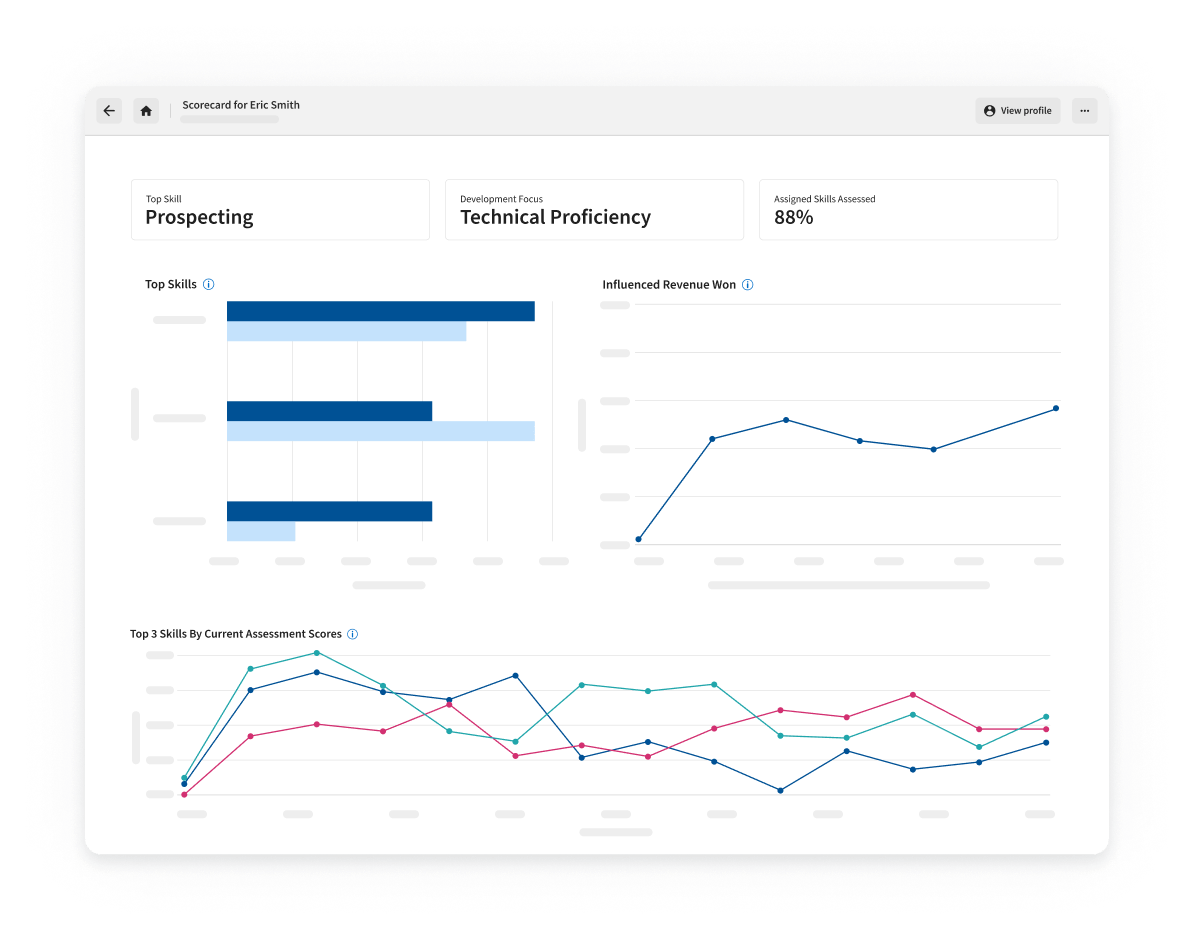Highspot for Sales Onboarding
Accelerate Rep Ramp Times with a Training & Onboarding Platform
Onboard and upskill sellers with dynamic learning experiences.

Boring Sales Training is Out. Engaging Reinforcement is In.
Sellers forget 87% of the training you deliver through conventional learning management systems (LMS) after just 30 days. There is a better way. Highspot enables sales trainers to create a comprehensive onboarding and training process that drives skill development, analyses training success, and reinforces knowledge retention in the same sales enablement platform salespeople know and love.

Accelerate Ramp Times

Deliver Effective Sales Training

Certify Sales Readiness
Personalise Your Sales Onboarding Processes for New Hires
You need an effective onboarding experience from day one to help new sales reps start selling quickly and successfully. Highspot’s sales onboarding software enables you to create interactive, engaging training sessions with dynamic assessments, skill certifications, and continuous learning opportunities in daily workflows, so you can set new employees up for success.

- Tailor sales onboarding programmes to specific roles, from product knowledge, to industry trends
- Combine lessons, role-play, video practice, instructor-led training (ILT), virtual ILT (vILT), and sales methodology courses in a single onboarding path
- Ensure new salespeople’s learning success by creating a sequential onboarding process with easy course gating
- Incentivise completion with role-relevant skill certifications
- Reinforce training material everywhere sellers work including Spots, sales plays, and CRM
- Set milestones to track how new sales hires are performing, giving sales managers actionable data on coaching opportunities
Deliver and Manage Live, Effective Sales Training
Ready to make even your best sales reps better? Highspot’s sales training software delivers hands-on, practical skills training via on-demand courses and live training events–ensuring sales teams get real-time feedback on how to close deals faster.
- Train and develop sellers on new sales skills and product messaging with interactive learning content, including quizzes and videos
- Easily schedule ILT and vILT by generating web-conferencing links in the flow of work
- Track learner performance metrics to ensure every seller achieves the right competence level
- Automate manual tasks such as enrolling sales reps in training modules or scheduling events in their calendar
- Deliver blended learning experiences by including live events in personalised learning paths
- Rapidly author training content with pre-built lesson templates or our drag-and-drop builder

Deliver Personalised, Data-Driven Sales Coaching That Scales
Great sales coaching unlocks your sales force’s potential. Highspot unifies sales content, training, and sales play analytics, enabling sales managers to focus coaching on what will accelerate sales cycles—from honing the right sales skills to closing skills gaps.

- Pinpoint areas for improvement by comparing top-performing sellers with team members using Rep Scorecards and frontline manager dashboards
- Organise training sessions and continuous learning information in one place, making it easy to support sellers’ progress
- Assign video practice assessments and challenges that help your sales reps grow skills and confidence
- Track and measure role-based skills and competencies with custom grading rubrics
- Integrate your preferred sales methodology into your sales training and coaching programmes
Sales Leaders and Teams Use Highspot to Hit Their Goals
Only Highspot delivers a sales enablement platform that helps salespeople ramp up faster and become more motivated and confident to meet quotas.
Highspot Users Say They Experience:
25%
decrease in sales rep ramp time
20%
increase in sales reps attaining quota
12%
increase in win rate
7%
increase in average deal size
14%
increase in pipeline generation
8%
decrease in sales cycle time
You’ve Got a Number to Meet. We’ll Get You There.
Book a Live Demo
Get a personalised walkthrough to see how Highspot can grow your numbers.
Watch a Video Demo
Watch a quick video overview to see how Highspot enables sellers to engage more effectively.
Take a Product Tour
Get a sneak peek of how Highspot makes it easy to increase revenue impact.




